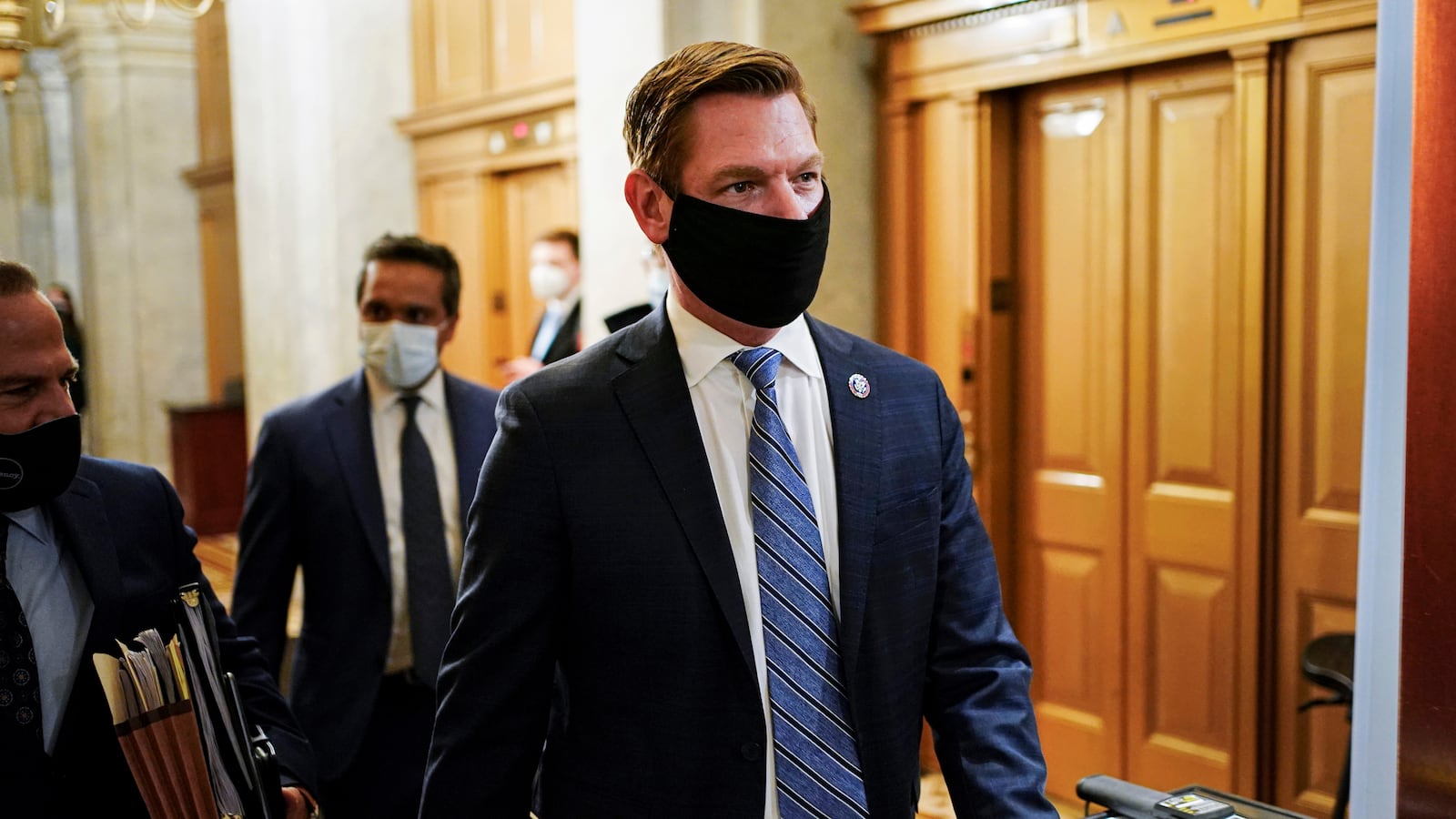Rep. Eric Swalwell, the California Democrat who spearheaded impeachment arguments against Donald Trump earlier this year, has sued the former president and some of his most powerful allies for their roles in inciting the deadly Capitol insurrection.
The lawsuit was filed Friday and it aims to hold Trump—as well as his son Donald Trump Jr., Rudy Giuliani, and Rep. Mo Brooks (R-AL)—accountable for inflaming tensions ahead of the Jan. 6 riot. All four men spoke at the rally outside the White House before the attack.
Swalwell’s lawsuit is just the latest legal blow to Trump—it follows a similar lawsuit that Rep. Bennie Thompson (D-MS) and the NAACP served to Trump at his Mar-a-Lago club last week. Like Thompson’s suit, it cites the 1871 Ku Klux Klan Act, which was designed to protect lawmakers from violence and intimidation.
But Swalwell’s suit—which was filed in the U.S. District Court in Washington, D.C., by the law firm KaiserDillon PLLC—goes further and accuses Trump and his key allies of breaking anti-terrorism laws, aiding and abetting violent rioters, and intentionally inflicting “severe emotional distress” on lawmakers who were at the Capitol that day.
The complaint alleges: “As a direct and foreseeable consequence of the Defendants’ false and incendiary allegations of fraud and theft, and in direct response to the Defendants’ express calls for violence at the rally, a violent mob attacked the U.S. Capitol.”
Swalwell argues that, as a result of Trump’s role in inciting the riot, he should be forced to pay financial damages and, in the future, be made to provide written notice seven days in advance of a rally or public event hosted in Washington on an important election day.
The lawsuit concludes: “The defendants, in short, convinced the mob that something was occurring that—if actually true—might indeed justify violence, and then sent that mob to the Capitol with violence-laced calls for immediate action.”
During his trial, Trump’s lawyers repeatedly denied that he was responsible for the attack on the Capitol, and asserted that the then-president was protected by the First Amendment when he urged his supporters outside the White House to “fight like hell” to “stop the steal.”
In response to the suit, Trump spokesman Jason Miller reportedly said in a statement, “Eric Swalwell is a low-life with no credibility.”





